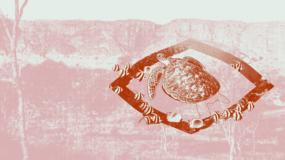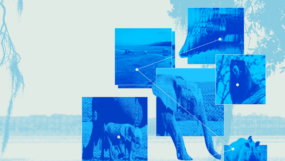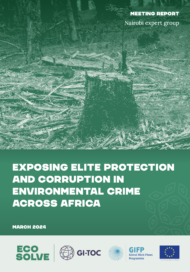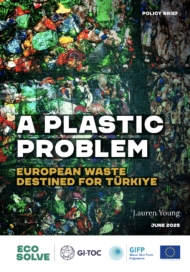Event Details
Posted on 18 Apr 2024
On 20 March 2024, at an event in Brussels, the Global Initiative Against Transnational Organized Crime (GI-TOC) launched ECO-SOLVE, a global EU-funded programme aimed at disrupting illicit environmental flows.
Environmental crime is among the biggest threats to wildlife, involving the illegal exploitation of the world’s flora and fauna. According to the IUCN Red List of Threatened Species, more than 1 million species currently face the risk of extinction. In recent decades, flora and fauna have experienced unprecedented global declines, with serious consequences for biodiversity, community livelihoods, public health, the global economy, and national and regional security.
ECO-SOLVE, a three-year project, and part of the EU’s Global Illicit Flows programme (GIFP), is dedicated to combating environmental crime and implementing the EU’s Environmental Crime Directive. In line with the European Commission, the programme also aims to address the pressing challenges posed by biodiversity loss and climate change and, in cooperation with the European Multidisciplinary Platform Against Criminal Threats (EMPACT), to implement responses to the priorities identified in the EU Serious and Organized Crime Threat Assessment.
The programme’s objectives include building global databases on wildlife trafficking; uncovering evidence of elite corruption behind the illegal timber industry; supporting law enforcement efforts to disrupt these illicit flows; empowering local communities; and contributing to the formulation of effective global policies. The launch event outlined the strategies that the ECO-SOLVE programme will use to achieve them. Participants included European Commission staff, representatives of EMPACT and the GIFP, experts on organized crime and corruption, officials from intergovernmental organizations and representatives of non-profit organizations implementing initiatives at the community level.
However, the challenges to achieving the programme’s objectives are multifarious. For example, at the event, the chief ranger at South Africa’s Kruger National Park – one of the largest game reserves in Africa – was publicly interviewed by John Githongo, CEO of the NGO Inuka Kenya ni Sisi and a former anti-corruption official in the Kenyan government. Chief ranger Cathy Dreyer highlighted the pervasive issue of corruption among the park’s staff, which has contributed to the staggering number of rhinos killed over the past 15 years – 5 700 – as well as the illegal hunting of a number of wildlife species for bushmeat, and the illicit harvesting of rare timber and plants. This corruption has fuelled high levels of criminal activity around the park, to the detriment of the community living within and around its peripheries. Dreyer discussed her efforts to combat corruption by focusing on building resilience among staff, fostering positive community relations, and forming strategic partnerships to ensure the long-term protection of rhinos and the park’s community.
The growing role of the internet in wildlife trafficking also presents a major challenge to disrupting environmental flows. Representatives from civil society, law enforcement and the private sector shared best practices, including how to utilize initiatives such as ECO-SOLVE. They emphasized the importance of collaboration and the harnessing new technologies to address the negative impact of wildlife trafficking on the internet. A representative from the International Fund for Animal Welfare shed light on emerging regulatory frameworks such as the EU’s Digital Services Act, which aims to increase the monitoring obligations and liability of online platform services for the presence of illegal content on their platforms. A representative from Standard Chartered Bank discussed how monitoring data from online platforms can be used to inform financial services systems to identify wildlife traffickers and thus deny services to them.
Lastly, participants addressed the importance of community involvement in responding to environmental crime. Jeremy Phan, director of the NGO Lao Conservation Trust for Wildlife, highlighted the value of raising awareness on wildlife crime among community members; Sofia Espindola of Front Line Defenders emphasized the need to support indigenous communities as potential game changers in disrupting illegal activities on their land; and Salvatore Amato, ECO-SOLVE’s law enforcement liaison, stressed the need to formulate trust and collaboration between law enforcement and communities. The panel highlighted the complexity and diversity of the environmental crime challenges faced by communities the world over.
The launch event provided valuable insights into how the project plans to play a crucial role in proposing and modelling innovative strategies to combat environmental crime. By supporting law enforcement agencies and community groups, and building networks of conservationists, private sector companies and policymakers, ECO-SOLVE aims to contribute to global efforts to disrupt environmental crime.
For more info on how to engage with the programme visit: www.ecosolve.eco



